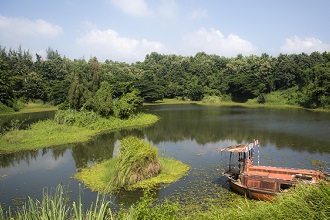
With an enormous participation of about 520 project entries, the second call for proposals of the IKI Small Grants programme ended on the 9 February. More than 500 organisations from 83 developing and emerging countries have submitted applications to the funding programme of he Federal Ministry for the Environment, Nature Conservation and Nuclear Safety (BMU) for the protection of the climate or biodiversity.
All complete project applications received will be subjected to a technical and legal/commercial evaluation and selected in consultation with the BMU in due time. The IKI Small Grants Team of the Deutsche Gesellschaft für Internationale Zusammenarbeit (GIZ) GmbH is responsible for the assessment. Grants can amount to up to 200,000 euros under certain circumstances.
All applicants are informed whether their application has been selected for funding (or not) after the selection process has been completed.
About 80 percent of project applications has been received from Africa and Asia
Applications have been received mostly from Africa and Asia and accounted for about 80 percent of project applications while Europe and Latin America represent about 20 percent of submitted project applications submitted. All applications reflect a wide variety of activities. The topics with which the organisations applied range from culture, education, health and mobility to energy efficiency and agriculture. Most have very concrete plans at the local level. Submitted project applications include proposals for supporting specific communities in the control and management of invasive plant species or using education to raise awareness of the impacts of climate change.
Two-thirds of the projects submitted relate to the funding areas of adaptation to the impacts of climate change and mitigation of greenhouse gas emissions. Among other things, organisations have submitted applications to support the construction of solar irrigation systems or to promote particularly vulnerable population groups such as women and children in climate-relevant training programmes.
IKI Small Grants – specifically its ‘International Calls’ funding line – aims to support small subnational, national and regional organisations. These must be based and registered in countries that meet the criteria for Official Development Assistance (ODA) defined by the Development Assistance Committee (DAC) of the Organisation for Economic Co-operation and Development (OECD). The selection process is single-staged; organisations apply directly for a grant to implement local or regional climate and biodiversity projects. A special feature of IKI Small Grants is its capacity development strategy. That means that selected projects – within the framework of financial support as well as through the GIZ external structure in the partner countries – receive special support for their organisational capacity development.

